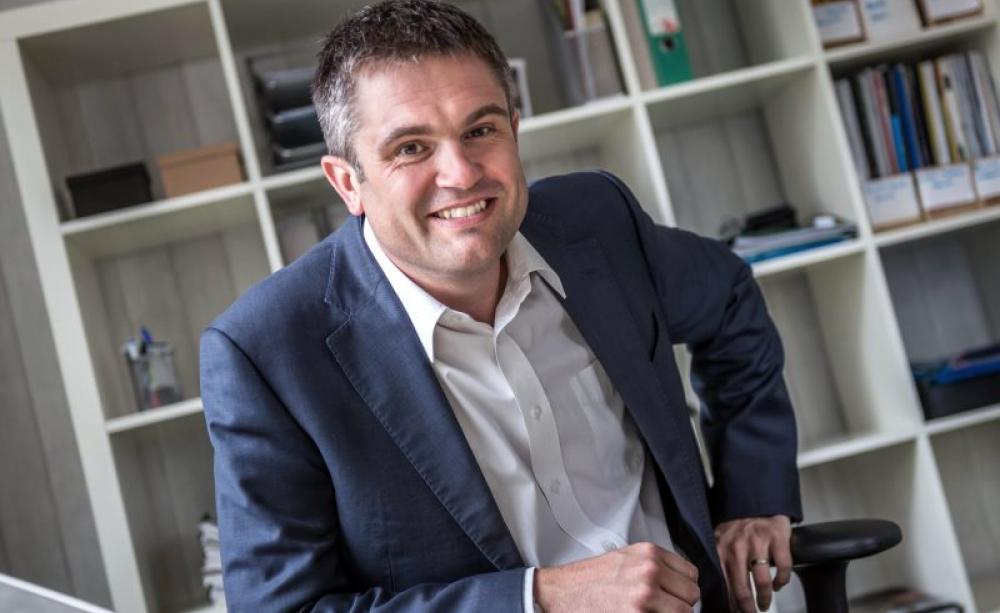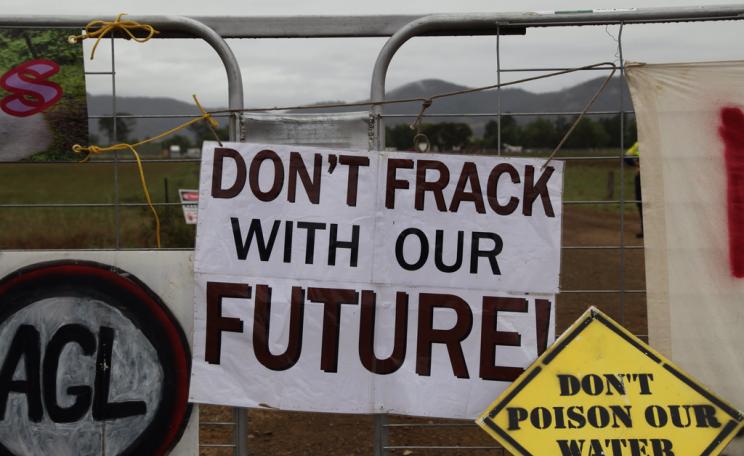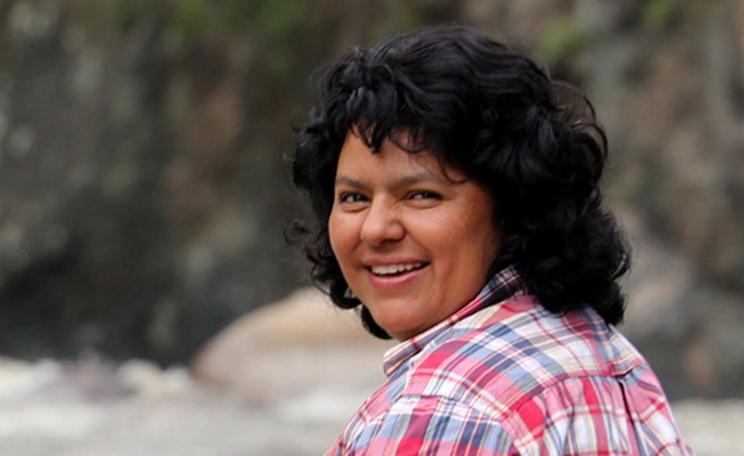We have to go back to the trenches, use the older tactics. This government is completely out of touch. They have declared war on renewables but everyone supports them. They back fracking but no one wants it. We have people on our side everywhere.
For someone who spent the night celebrating a Welsh community's rejection of a giant opencast coal mine, Craig Bennett seems pretty clear-headed.
The new head of Friends of the Earth (FoE) may not have known the words of Hen Wlad Fy Nhadau, the Welsh national anthem, but he sang them along with ex-miners in the Blast Furnace Inn pub in Pontlottyn, he says.
And the experience of working with them and others to reject the Nant Llesg mine rammed home the point that environmental groups must become relevant again to all kinds of people.
"We were one gang together in the Blast Furnace", he says. "The point is, the Nant Llesg mine was going to extract 6m tonnes of coal, and it's obviously a massive climate change issue.
"But for local people it's much more than that. It's an air pollution and a health issue because of the dust it would cause; it's an economic issue because of the jobs needed; it's a social justice issue because all this Welsh community had been offered was more dirty jobs by a bully-boy company. It's completely artificial to think that it's only a climate issue."
The boy done good
Bennett doesn't really look like your archetypal environmental campaigner. The 43-year-old is that new mix of suited radical and optimistic New Establishment man. His parents were grammar school-educated, out of London's East End and southern Essex.
He talks quickly and directly, like a campaigner rather than an administrator, as if there's no time to spend yakking in roundtable groups, drinking warm white wine with policy wonks or schmoozing civil servants. He has a few stock phrases - such as "we have history on our side" - but he seems not to have learned the lines of the civil servant or the thrusting politician.
But that raises difficult questions about how best to make an impact. And this week a larger concern reared its head, one that will test his and his organisation's strategy to its limits. For if resisting coal mining gets Bennett singing in Welsh, large-scale fracking in Britain could have him Mongolian throat chanting, so passionately does he oppose it on so many grounds.
This week the government announced plans to open a further 1,000sq miles of rural Britain to drilling and to limit opposition to a few weeks. Aside from thinking it a travesty of democracy, he can see re-runs of the 1990s road protests, and the unlikeliest people manning the barricades.
"I would expect massive protests. Government will need thousands of wells to be drilled if they are to meet their promises of lower energy bills, but huge opposition has built up just over the industry's first few attempts. Multiply those protests by thousands."
We have to go back to the trenches, use the older tactics. This government is completely out of touch. They have declared war on renewables but everyone supports them. They back fracking but no one wants it. We have people on our side everywhere.
"I am particularly concerned about climate change, but local people are right to be worried about everything else. If someone wanted to frack my street, my immediate concern would be noise and air pollution and the threat to water. I totally understand these are the primary concerns of local people.
"But what we have found in communities threatened by fracking in Lancashire is that they all get the climate change issue, too."
It's time to listen to ordinary people again
The days when environmentalists cosied up to Whitehall and political parties are over, he says. "In the 1970 and 80s, groups like Friends of the Earth connected to people's lives. In the 2000s we were successful with policies and we were listened to in government. Now is the time to listen to ordinary people again."
"I think we all got too much into a bubble, spent too much time with policy wonks and forgot about people. We were campaigning [on climate] about parts per million and percentage-point reductions. But I wish 10 years ago we had spent more time pushing community energy.
"There's a way of talking about climate change and we got out of touch - we didn't connect with people's lives. We [sometimes] look at things from an organisational point of view rather than what they mean to most people. We must not lose our connection with the mass of people."
No chance of getting too close to government now, he says. "George Osborne is unleashing an ideological war on all things green. He is dismantling policies that have taken a generation to put together. Cameron is playing to the ideology of the swivel-eyed loons in the Conservative party, throwing bones to its backbenchers. Amber Rudd [energy and climate change secretary] is an ideological hypocrite of the first order. It's obscene to think that they will get away with what they are doing.
"I don't hold out too much hope with this government, although we should not forget that Conservative governments in the past have introduced landmark policies."
It's open war now with Cameron and co, he says, and he wants to lead the attack from the front. "They started it. We have to go back to the trenches, use the older tactics. It's back to the future. This government is completely out of touch. Politicians talking to politicians do not understand what is going on.
"They have declared war on renewables [such as wind and solar power] but everyone supports them. They have backed fracking but no one wants it. We have people on our side everywhere.
"I see politicians here just cutting and pasting old ideology from the US. They say fracking will work here because it did there. This is old thinking, they are stuck on repeat. Let's move on."
Keeping it rooted in local communities
A true child of the modern movement, and almost the same age as Friends of the Earth itself, Bennett joined the group at 14, the day after hearing its then director Jonathon Porritt on Question Time ("How sad is that?" he asks), and thinking he was the only person on the panel making sense.
Knowing he only ever wanted to stop the war on nature, he started at the Environmental Investigation Agency after a masters at UCL, then went to work for FoE in his 20s. His first job was to protect his own patch, Rainham Marshes. In those days even his family thought it a dump.
But last month he went back and saw a completely different landscape. "If we can turn places like Rainham Marshes from being seen as a dump into somewhere where there are water voles, and which tens of thousands of people visit every year, we can do anything."
Chuck in three years' lecturing on environment and corporate responsibility at Oxford, Cambridge, and other universities and business schools, and Bennett is the very model of a modern eco-general.
But Friends of the Earth is unlike most green organisations: it is not given to charismatic leaders or smooth talking. Rooted in its many local groups, which range from small clubs for retired radicals to passionate new critics of the status quo, they identify 300,000 supporters who all want change, but mostly think for themselves. These groups, says Bennett, will be on the frontline of the coming protests at Tory policies, and out of them will emerge the grassroots leaders who will bring lasting change.
"How will change come in the next 20 years when there's such a great distrust of politicians, even despair at them", he asks. He answers himself. "Leadership will come from communities, not from politicians. Change will come from smaller, upstart businesses and groups."
Moving beyond the middle class comfort zone
But it means the group must shed its white, middle-class roots and harness emerging communities to drive change. That might mean getting football supporters to monitor the emissions of clubs, city professionals to push for an increase in renewable energy investments, or inner-city communities to monitor air pollution, he says.
"We have missed the health trick", he says. "We have strong health and environment sectors, but there's not much collaboration between them. It's a scandal that we have 30-50,000 people dying prematurely from air pollution. That is the equivalent of an Airbus crashing every week. If that happened there would be immediate change."
"I want to see Bangladeshi, business, cycling, even baking [groups in] Friends of the Earth. Why not? There are lots of people into baking who also care about the environment. They could come together for a few days of the year. It's not for us to say, 'This is our definition of community.'
"But it means a change of approach and tactics. We should get back to social enterprise. Our local groups led the way in the 1970s and 80s to make recycling possible. We want to make things happen. We have to change the pace and raise the temperature.
"Back in the 70s and 80s, we had to make a big noise, to shout at tables with a megaphone. Now the vast majority of people are with us. We are on the side of history now. Any big social change in history is never smooth. The slave owners used similar language as the climate deniers do today - saying they had to keep it going or the industry would collapse."
He has been approached by two political parties, but has little faith in them, and no inclination to join. "I have spent a lifetime waiting for a green JFK to come along. He won't. I have given up waiting for political leadership. I have given up thinking that big organisations might move to a low-carbon economy. It doesn't fit the business model", he says.
Nor do big solutions fit the future, he says. "What I have learned is that there's no solution to climate change that can be done to people. Fracking, nuclear and coal will not endure because they do not have communities with them."
Not just holding back the damage: we want a positive future!
Back in the the Blast Furnace pub, he committed the group to working with local communities who oppose coal and fracking companies. It could mean giving them legal help, or even crowdfunding to help them raise money.
"We can bring our professional expertise to work in partnership with them. We can't walk away from them. We fully expect the bully boys to come back to and appeal against the council decision to reject the mine, but we told the community we would be with them every step of the way.
"My generation has to have a vision of restoration, of turning the whole direction of travel", he says. "We don't want to just slow the decline. We want a positive future. We mustn't listen to the naysayers."
John Vidal is Environment Editor at the Guardian.
This article was originally published by the Guardian and is reproduced with thanks via the Guardian Environment Network.







